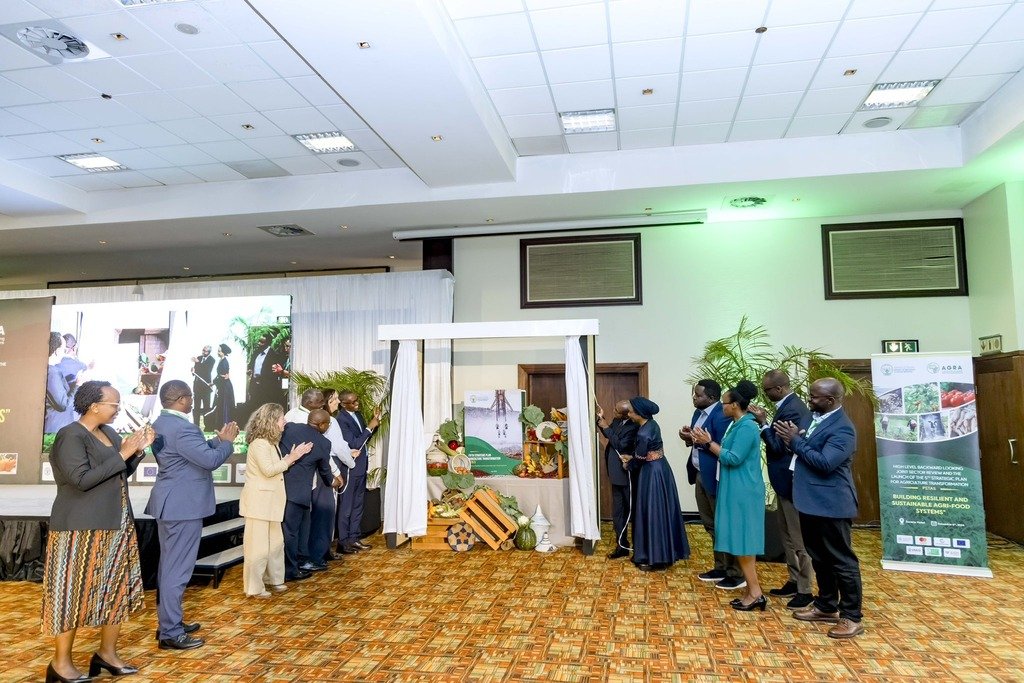Rwanda has taken a monumental step toward agricultural modernization and food security, unveiling a robust strategy to revolutionize its agrotech sector while fostering the next generation of agrofood leaders. Two landmark initiatives—the government’s fifth Strategic Plan for Agriculture Modernization and Food Security (PSTA5) and the Food and Agriculture Organization’s (FAO) project on Harnessing SDG-based Agrifood System Transformation through the Empowerment of the Next Generation (HASTEN)—promise to reshape the nation’s agricultural and developmental trajectory.
A Strategic Blueprint for Modernization
The Rwandan government has released a comprehensive roadmap aimed at transforming agriculture into a high-productivity, technology-driven sector capable of ensuring food security for its rapidly growing population. The plan focuses on scaling up the use of advanced technologies such as precision farming, data analytics, and climate-resilient crops. Additionally, the strategy emphasizes expanding access to irrigation, digital tools, and credit facilities for smallholder farmers.
Unveiled in Kigali, PSTA5 outlines Rwanda’s vision to modernize its agricultural sector with a focus on technology, youth engagement, and gender equity. Minister of Agriculture and Animal Resources Rwanda, Dr. Mark Cyubahiro Bagabe, described the plan as pivotal, emphasizing its alignment with global frameworks like the Sustainable Development Goals (SDGs). “The success of this strategy lies in collective action to ensure resilient, sustainable, and equitable agri-food systems for all,” he stated.
Also read: Agrotech Investment in Africa Hits $1.5B Milestone; Eyes Women Entrepreneurs
Key pillars of the strategy include:
- Smart Farming: Incorporating IoT and AI to optimize farm yields.
- Agro-Infrastructure: Enhancing rural connectivity and storage facilities.
- Market Linkages: Developing digital platforms to connect farmers directly with markets and exporters.
HASTEN: Cultivating the Next Generation of Agrofood Leaders
Complementing this strategic vision is the FAO’s HASTEN initiative, launched to empower youth and women in agriculture through leadership development, innovation, and skills training. The project aligns closely with Rwanda’s national agenda of transforming its agricultural sector and achieving the Sustainable Development Goals (SDGs).
Synergy for Impact
The synergy between these two initiatives creates a ripple effect across Rwanda’s agrofood ecosystem:
- Technology-Driven Education: HASTEN’s training programs will integrate the technologies prioritized in Rwanda’s modernization plan, ensuring a skilled workforce to implement these tools.
- Inclusivity and Innovation: By targeting marginalized groups, the initiatives collectively address inequalities while fostering a culture of innovation in agrofood systems.
- Global Partnerships: Both efforts seek to attract international collaborations, investments, and knowledge-sharing to drive sustainable growth.
A Template for Africa
The dual approach—combining modernization with youth empowerment—positions Rwanda as a beacon for other African nations aiming to reform their agricultural systems. If successful, these initiatives could provide a replicable model for leveraging technology and human capital to achieve food security, economic growth, and sustainable development.
Synergies and Shared Goals
As these transformative projects unfold, the world watches closely. For Rwanda, the stakes are high: a successful implementation could not only bolster the nation’s food security but also redefine its role as a trailblazer in Africa’s agrotech revolution. These twin initiatives exemplify Rwanda’s commitment to a future where agriculture is not just a means of survival but a driving force for prosperity, innovation, and equity.
By leveraging global partnerships and fostering local innovation, Rwanda is setting a precedent in agricultural modernization. As these strategies unfold, they promise to transform the nation’s agrofood landscape, ensuring sustainable livelihoods, improved food security, and a resilient economy for generations to come.



